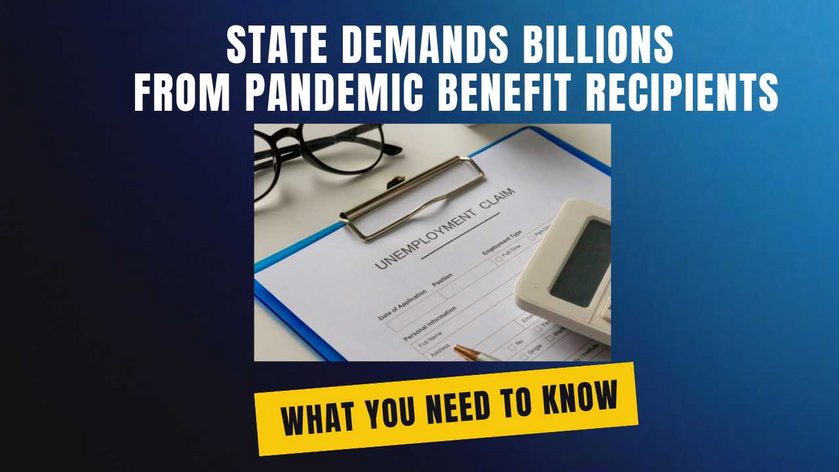LANSING, Mich. — Michigan is restarting efforts to collect more than $2.7 billion in unemployment benefit overpayments from roughly 350,000 workers, following settlement of a class‐action lawsuit that had paused collection activity.
What’s Happening & Key Dates
Under a court‐approved settlement in Saunders v. UIA, the UIA will lift the pause on collecting overpaid unemployment benefits effective September 12, 2025.
First payments from affected claimants are due September 29, 2025.
Claimants will begin seeing notices in their Michigan Web Account Manager (MiWAM) accounts starting September 9, with a follow‐up formal collection notice (Form 1088) on or after September 12 that spells out the amount owed and options for repayment.
Want to get news emailed to you the media isn’t covering. Make sure you are signed up to my free newsletter? You can also become a paid subscriber, if you are not already to support my independent journalism.
Who’s Affected
The resumption applies to people whose overpayment claims date back to March 2020, the onset of the COVID‐19 pandemic.
Many of those affected filed claims in 2020 or 2021.
Relief / Waiver Options
For those who cannot pay, the UIA is offering financial hardship waivers.
Claims with findings of fraud will not be eligible for waivers.
Payments may be made through MiWAM or by mail using the provided Form 1088 Payment Voucher.
Legal & Policy Background
The pause in collections had been imposed due to Saunders v. UIA, a class‐action suit challenging the UIA’s overpayment collections practices. As part of that litigation, some collections were halted while issues such as timely protest or appeal, and fairness of notice, were considered.
In May 2025, a settlement in the lawsuit was reached, requiring UIA to resume collections under updated terms.
Wider Context & Issues
The $2.7 billion figure reflects overpayments that occurred due largely to pandemic-era disruptions: overwhelmed systems, rapidly changing eligibility rules, worker mistakes, and possibly agency administrative errors.
Advocates note that many affected individuals are likely already under financial strain, and the sudden demand for repayment could exacerbate hardships. Some have raised concerns about whether proper notice was given at the time of the overpayments, and whether claimants had sufficient opportunity to protest or appeal.
There’s uncertainty about how much of the $2.7 billion will actually be recovered, given waivers, financial hardships, and in some cases, inability to locate claimants.
What Claimants Should Know
Check your MiWAM account for messages about overpayments and upcoming collection notices.
If you owe money and cannot pay, apply for a waiver promptly. The UIA provides a process for requesting a hardship waiver.
Even if collection is resuming, there may be legal protections if your protest or appeal was in process or if you were improperly denied appeal rights.
Reaction and Implications
Some claimants say they were surprised by the timing, citing that in many cases they were notified years ago of overpayments but did not face collection until now.
The UIA says securing these repayments is necessary to protect the Unemployment Insurance Trust Fund and ensure benefits remain available for future claimants.
Legal experts observe that the UIA’s policies during the pandemic—including the way appeals and protests were handled, and how overpayments were determined—are under increased scrutiny, as are the procedural protections for claimants.
Bottom line: If you received unemployment benefits in Michigan during the pandemic and were later told you were overpaid, there’s a strong chance now that the state will demand repayment starting September 29, 2025, unless you qualify for a waiver or there are legal protections in your case. Keeping tabs on notices, understanding your rights, and acting early will be crucial.




















